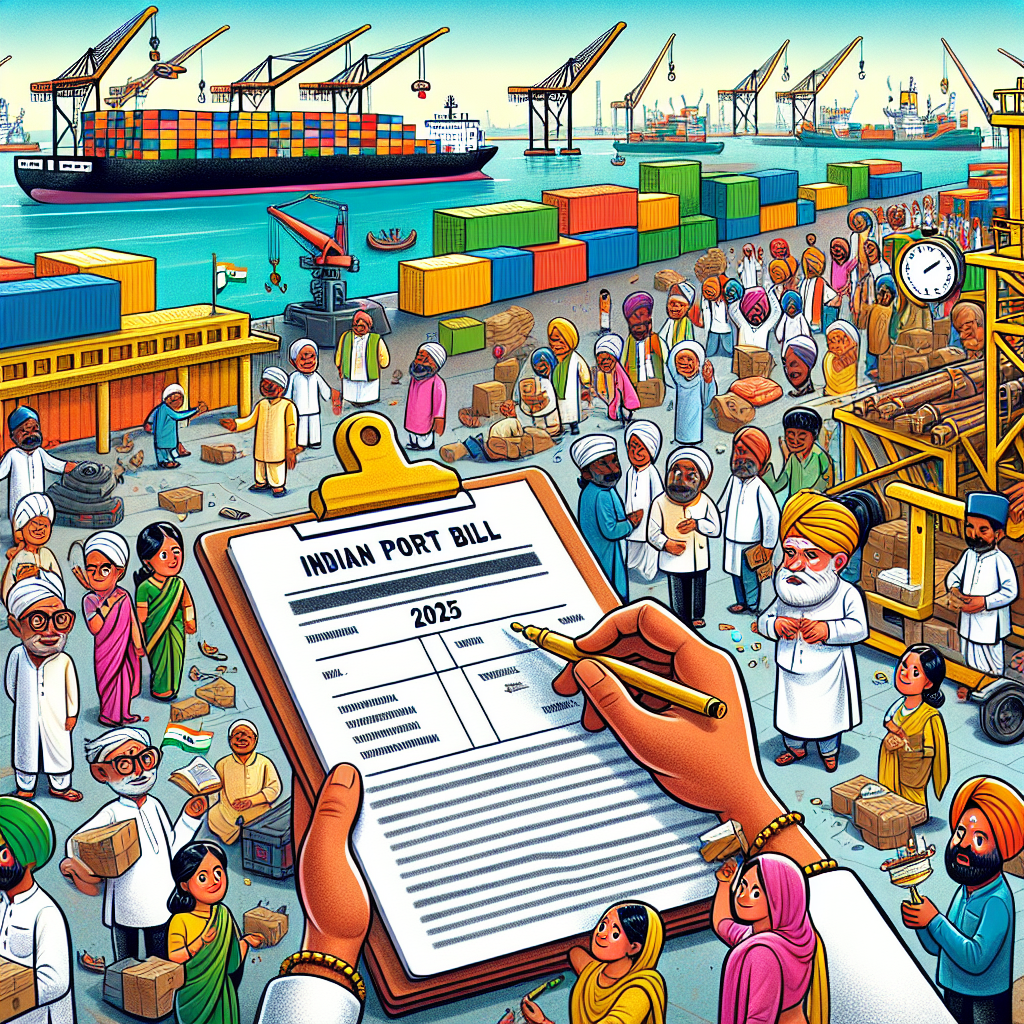Indian Ports Bill, 2025 Passed: Transforming Maritime Governance & Trade Efficiency
The Indian Ports Bill, 2025 is designed to simplify procedures, digitalise port operations, and improve the ease of doing business (EODB).

- Country:
- India
In a landmark development for India’s maritime sector, the Lok Sabha has passed the Indian Ports Bill, 2025, heralding a new chapter in the nation’s port governance and trade infrastructure. The bill, introduced by Union Minister of Ports, Shipping & Waterways Shri Sarbananda Sonowal, replaces the Indian Ports Act of 1908, marking the end of a colonial-era regulatory framework and ushering in a modern, sustainable, and globally competitive maritime governance structure.
According to the minister, the legislation embodies Prime Minister Shri Narendra Modi’s vision of a self-reliant, future-ready maritime sector and reflects the government’s commitment to the ‘Ports for Prosperity’ agenda under Viksit Bharat.
Modernising Port Governance
The Indian Ports Bill, 2025 is designed to simplify procedures, digitalise port operations, and improve the ease of doing business (EODB). It establishes uniform safety, operational, and planning standards across all Indian ports—both major and non-major—ensuring streamlined processes and reducing bureaucratic bottlenecks.
A central feature is the emphasis on integrated port planning, enabling better cargo flow, hinterland connectivity, and seamless integration with inland waterways and multimodal transport systems. The bill also empowers ports with greater autonomy to set competitive tariffs within a transparent regulatory framework, promoting efficiency while ensuring accountability.
Economic Impact and Trade Facilitation
The legislation is expected to reduce logistics costs by expediting cargo handling and improving connectivity, significantly boosting India’s trade competitiveness.
-
Exporters and MSMEs will benefit from faster processing, modern infrastructure, and reduced delays.
-
The bill is projected to create large-scale employment in port operations, logistics, warehousing, and related industries.
-
It encourages Public-Private Partnerships (PPPs) and foreign direct investment in port development, providing multiple funding avenues for expansion.
Sustainability and Environmental Protection
The bill places sustainability at the core of port operations, mandating:
-
Waste reception and handling facilities at all ports.
-
Strict anti-pollution measures in compliance with international conventions such as MARPOL and Ballast Water Management.
-
Renewable energy integration and shore power systems to reduce emissions.
-
Comprehensive disaster management and emergency preparedness plans to address environmental and security risks.
This focus on eco-friendly operations is expected to align India’s ports with global green port standards, enhancing environmental stewardship.
Institutional Framework for Cooperative Federalism
To strengthen coordination between the Centre and States, the bill establishes the Maritime State Development Council (MSDC), comprising representatives from both levels of government. The MSDC will:
-
Coordinate national port development strategies.
-
Resolve intergovernmental differences.
-
Promote collaborative decision-making for holistic growth.
In addition, State Maritime Boards will have enhanced authority to manage non-major ports effectively, while Dispute Resolution Committees will ensure swift settlements between ports, users, and service providers.
Strengthening India’s Global Maritime Position
Shri Sonowal underscored that the bill aligns with flagship government programmes like the Sagarmala Programme and Maritime India Vision 2030, both aimed at port-led development and enhanced global competitiveness.
“Under the dynamic leadership of PM Modi ji, we are creating an ecosystem that will strengthen our maritime prowess and position India as one of the top global maritime nations by 2047,” said Sonowal. “This bill is a decisive step toward making India’s ports globally competitive while safeguarding the environment and empowering coastal communities.”
By modernising legal frameworks, improving operational efficiency, and embedding sustainability into port governance, the Indian Ports Bill, 2025 ensures India’s maritime sector remains an engine of economic growth, trade facilitation, and environmental responsibility for decades to come.









